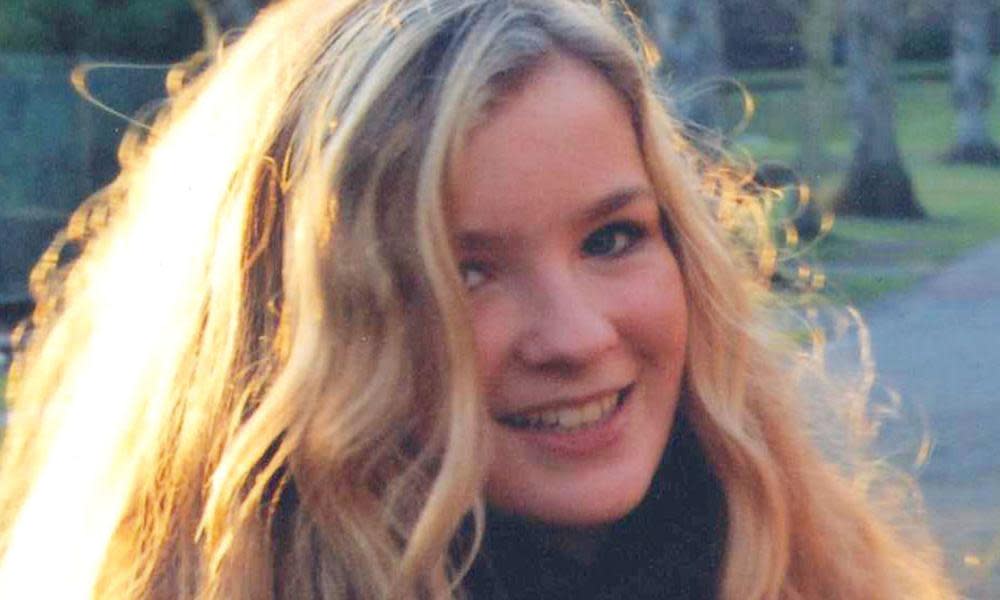Financial irregularities at home where teenager killed herself, inquest told

Financial irregularities were uncovered at a care home where a 19-year-old with bipolar disorder killed herself after cost cutting and a change of management which sparked staff fears that someone might die, an inquest has heard.
Sophie Bennett was found dead in her bathroom in May 2016 at the Lancaster Lodge mental health facility in Richmond, south-west London, after upheaval at the managing charity that was led by Elly Jansen, an internationally renowned figure in mental healthcare who also owned the premises.
Vincent Hill, who managed the home between 2011 and January 2016, told an inquest at West London coroner’s court how he resigned in protest at an abrupt decision to sack the residents’ psychological therapists, which he described as “absolutely reckless”.
Art therapists and Hill’s own clinical supervisor were also laid off, and a service evaluated as “good” by the Care Quality Commission declined to “inadequate”. Hill said it became a “bullying, insensitive, neglectful and dictatorial regime”. The changes came after the appearance of a “financial timebomb” in the organisation, said Caoilfhionn Gallagher QC, appearing for the Bennett family.
Hill said the sackings were ordered by another manager carrying out Jansen’s orders despite the fact that “the psychologists were critical to the patients’ recovery”.
Hill said a “boot camp” system was introduced for the facility’s eight or nine residents after he was replaced and the level of care declined rapidly. Some parents resorted to staying overnight at the home to keep their children safe, he said, and three residents were taken to hospital “at breaking point”. One parent complained they were “absolutely flabbergasted at the level of neglect”, the inquest heard, and a member of staff sent an email confessing they were “afraid that someone might die by the damage I caused”.
Explaining the context to these changes, Hill said: “The existing CEO began to find what he believed were financial irregularities. Simultaneous to that, those people who were on the board were basically ousted by Elly Jansen, who threatened to pull the plug on all of the homes if they didn’t resign.”
Jansen was not on the board of the charity Richmond Psychosocial Foundation International (RPFI), which ran the home, but John Taylor, the coroner, told the jury she was “more or less top of the pyramid of RPFI”.
Five months before Bennett killed herself, the charity appointed an auditor to examine the performance of its three homes, which was then presented to Jansen.
“Elly was very interested in my view on how close or far away each unit was to be able to maintain itself financially,” Duncan Lawrence, the auditor, told the inquest in a statement.
Jansen’s attitude to the residents was also called into question. Gallagher said that when two of the residents fled the home towards the river, Jansen said in an internal email that “two habitually manipulative girls ran off to the Thames without jumping in, which normally means getting hospitalised by the police, sectioned and returning during the next few days, having terrorised the group and terrified the staff”. She described residents as being engaged in a “campaign”.
Hill said this was “a very unfair way to talk about people with a mental health problem”.
Bennett, from Tooting, was also autistic and had anxiety disorder. She had attempted overdoses and had been discovered in 2015 trying to strangle herself while in hospital. She killed herself around four months after the cost-cutting began and she was told she would have to move to another facility.
Paul Spencer, counsel for RPFI, put it to Hill that “there is a funding crisis and there has been in the social care sector for many years” and that “difficult decisions”, including staff cuts, sometimes had to be made.
Hill accepted that could be the case, but said that was no reason to have an abrupt transition which would affect clinical care of vulnerable people.
The inquest continues.
In the UK, Samaritans can be contacted on 116 123 and the domestic violence helpline is 0808 2000 247. In Australia, the crisis support service Lifeline is 13 11 14 and the national family violence counselling service is 1800 737 732. In the US, the suicide prevention lifeline is 1-800-273-8255 and the domestic violence hotline is 1-800-799-SAFE (7233). Other international helplines can be found at www.befrienders.org

 Yahoo News
Yahoo News 
